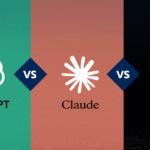Introduction
In the era of digital transformation and AI-powered decision-making, businesses are constantly seeking tools that enhance strategic clarity, ethical reasoning, and operational efficiency. One such tool gaining traction in 2025 is Claude AI, developed by Anthropic. Unlike other AI models that focus primarily on creativity or casual conversation, Claude is built to deliver structured, responsible, and context-aware outputs—making it particularly valuable in the realm of business strategy.
This essay explores the practical application of Claude AI in strategic planning through three case-based scenarios: market expansion, product diversification, and crisis management. By analyzing these cases, we examine how Claude assists with scenario analysis, stakeholder communication, and long-term decision-making.
Whether you’re a startup navigating growth or an established company refining brand reputation, Claude AI offers a powerful, ethics-driven layer of support. This case-based essay highlights how Claude can act not just as a content generator, but as a trusted thinking partner in complex business environments.
Understanding Claude AI’s Strategic Capabilities
In the evolving landscape of digital transformation, Claude AI, developed by Anthropic, is emerging as a strategic asset for businesses seeking safe, structured, and intelligent support in decision-making. Unlike other generative AI tools that prioritize creativity or speed, Claude is built on Constitutional AI principles—making it particularly suitable for use in business strategy, where clarity, compliance, and ethics are non-negotiable.
Claude AI’s core strength lies in its ability to analyze complex prompts, generate structured responses, and maintain context over longer interactions. For strategic planning, this means Claude can assist with tasks like:
- Drafting internal policy documents
- Conducting SWOT analyses
- Outlining market expansion strategies
- Simulating stakeholder communication scenarios

Thanks to its alignment-focused design, Claude delivers recommendations that are brand-safe, legally cautious, and thoughtfully reasoned. This makes it especially useful in industries like finance, healthcare, logistics, and consulting, where AI output must remain within defined ethical and operational boundaries.
Claude AI is not designed to pull real-time market data or browse the internet, but it excels in synthesizing structured information, benchmarking best practices, and generating scenario-based insights when given the right inputs. Its ability to understand context and reframe business challenges through multiple lenses—strategic, operational, ethical—gives organizations a decision support tool that encourages reflection over impulsivity.
In summary, Claude’s strategic capabilities are best utilized when businesses need a trustworthy, logically consistent AI partner that can contribute to high-stakes decision-making without crossing ethical lines or sacrificing professionalism.
Case Study 1: Market Entry Strategy for a Tech Startup
Imagine a SaaS-based tech startup based in Germany, aiming to expand its project management software into Southeast Asian markets, particularly Indonesia and Malaysia. The company’s leadership team turns to Claude AI to support its market entry strategy—seeking structured insights without the biases or volatility often associated with open-ended brainstorming sessions.
Using Claude, the team begins by inputting a detailed company profile, current product offerings, and expansion goals. Claude responds by generating a SWOT analysis, highlighting internal strengths like agile product development and weaknesses such as limited brand awareness in Asia. It also outlines opportunities like the region’s increasing demand for remote work tools and threats including regulatory complexity and established competitors like Asana or Trello.
Next, Claude assists in mapping a go-to-market strategy. It suggests market segmentation approaches, local pricing models, and localization of language and UI features. Claude also highlights cultural considerations, advising that in Indonesia, relationship-based selling may yield better results than cold acquisition tactics.
While Claude AI does not access live regional economic indicators, it can draw on generalized data patterns and best practices, helping the startup avoid common pitfalls. It even simulates possible stakeholder responses—useful for preparing investor decks or internal planning documents.
Ultimately, Claude enables the startup to craft a data-informed, risk-aware expansion plan with ethical and practical foresight. It demonstrates how AI-powered strategic support can guide startups through unfamiliar markets with greater confidence and clarity.
Case Study 2: Product Diversification for a Retail Brand
A mid-sized fashion retail brand based in the UK is preparing to diversify its product line by launching a sustainable clothing collection. While the company has a strong offline presence and a loyal customer base, it lacks experience in eco-friendly fashion. To reduce strategic risk and ensure relevance, the marketing and product development teams use Claude AI to support their product diversification strategy.
The team begins by prompting Claude with company goals, current product categories, and their vision for sustainability. Claude responds with a trend analysis based on general industry data, identifying key consumer expectations: transparency in sourcing, use of organic materials, and certifications like GOTS or Fair Trade. The Claude AI also outlines competitor benchmarks and offers a framework for comparing internal capabilities with emerging green fashion leaders.
Claude is further tasked with helping the team define customer personas for the new line. It generates detailed profiles based on buyer motivations—such as environmentally conscious millennials or Gen Z shoppers seeking affordable eco-options. These insights guide targeted marketing campaigns and product design choices.
When the team queries Claude on pricing strategies, it proposes tiered pricing based on production cost and perceived value while ensuring alignment with the brand’s mid-range market positioning. Claude also highlights potential risks, including greenwashing accusations and supply chain disruptions.
Thanks to its structured, unbiased output, Claude AI enables the retail brand to build a well-informed, ethical, and forward-looking product diversification plan—balancing innovation with business feasibility.
Case Study 3: Crisis Management and Reputation Strategy
A logistics company operating across Europe and Asia faces a significant reputational crisis: a viral social media thread accuses the company of mishandling time-sensitive deliveries, causing losses for small business clients. The backlash leads to negative press, customer complaints, and potential contract cancellations. The company’s leadership turns to Claude AI to craft a crisis management strategy that is transparent, ethical, and aligned with corporate values.
The communications team begins by feeding Claude a summary of the situation, customer pain points, and stakeholder concerns. Claude provides a structured response plan, starting with an official apology that acknowledges customer frustration, followed by actionable steps the company will take to prevent future issues. Its tone remains empathetic and professional—key to rebuilding trust without sounding defensive or scripted.
Claude then assists in mapping a stakeholder-specific communication strategy, suggesting different messaging approaches for investors, employees, partners, and the public. For instance, it recommends a press release for corporate transparency, an internal memo to reassure staff, and direct outreach to affected clients with tailored compensation offers.
In addition, Claude outlines a risk mitigation framework, including social media monitoring protocols, FAQs for customer service reps, and brand recovery milestones. The AI even flags potential legal risks, advising that language in public statements should avoid overpromising or admitting liability.
The result is a coherent, ethical, and brand-aligned crisis response that helps stabilize the company’s image. This case demonstrates Claude AI’s value as a business ethics and communication advisor, offering calm, calculated guidance during reputational storms.
Strengths and Limitations of Using Claude AI in Strategy
Claude AI has quickly become a valuable tool for organizations looking to enhance their strategic decision-making. Its design prioritizes ethical reasoning, structured output, and clarity—making it ideal for high-stakes domains like finance, retail, logistics, and policy development. However, as with any AI system, its effectiveness depends on how it is used and the nature of the problem being addressed.
Strengths
One of Claude’s greatest advantages is its alignment with business values. Thanks to its Constitutional AI framework, it produces responses that are consistent, brand-safe, and aligned with ethical standards. This makes it especially effective in corporate communication, stakeholder engagement, and risk-sensitive decisions.
Claude also excels at structured content generation. It can create SWOT analyses, simulate scenario planning, and even assist with internal policy drafting—functions that support long-term business planning. Its ability to maintain context over longer conversations makes it an effective collaborator for strategic brainstorming sessions.
Furthermore, Claude avoids hallucinations better than many other models, reducing the risk of presenting misleading or factually incorrect suggestions—critical in strategic planning where accuracy matters.

Limitations
However, Claude does not access real-time data or the internet, which means it cannot provide live market trends, competitor pricing, or financial updates. Its insights are based on training data and the quality of user prompts.
Another limitation is its lack of domain-specific specialization. While it performs well across general business contexts, it may not match the depth of a sector-specific expert system or human consultant in complex niches.
Despite these limitations, Claude remains a highly dependable AI partner for strategic thinking, especially when used alongside human expertise and real-world data.
Future Outlook: Claude AI in Business Decision-Making
As businesses continue to integrate AI into strategic planning, Claude AI is poised to become an integral part of enterprise decision-making frameworks. Its strength lies not in real-time data access but in its ability to structure ideas, assess risks, and support ethical reasoning—a critical advantage in an age of increasing regulatory scrutiny and stakeholder expectations.
Looking ahead, Claude’s role in scenario planning, policy development, and sustainability strategy is expected to grow. Enterprises are already using it to simulate boardroom discussions, craft customer-centric policies, and align strategic goals with environmental, social, and governance (ESG) standards. Its bias-mitigated design makes it particularly suitable for long-term planning, where reputational risk and compliance are just as important as profitability.
In future iterations, we may see Claude integrated into business intelligence (BI) platforms, project management tools, or customer relationship management (CRM) systems—allowing real-time interaction between AI-generated strategy drafts and internal analytics dashboards.
Moreover, as companies shift toward more responsible AI adoption, Claude’s safety-first design gives it a competitive edge. It’s not just an assistant for answering questions—it’s a partner that supports thoughtful, inclusive, and compliant decision-making.
In summary, Claude AI’s future lies in enhancing—not replacing—human strategy, making business planning more structured, ethical, and stakeholder-aligned in the years ahead.
Conclusion
In a business environment driven by complexity, ethics, and innovation, Claude AI offers a unique value proposition as a strategic support tool. Through real-world use cases—from market expansion and product diversification to crisis management—it has proven its ability to deliver structured, responsible, and context-aware insights.
Unlike other AI models focused on creativity or real-time data access, Claude shines in clarifying decisions, aligning with brand values, and offering well-reasoned outputs for internal planning. While it has limitations in domain depth and live data analysis, its strength lies in augmenting human judgment with clarity and ethical foresight.
As enterprises move toward responsible AI integration, Claude AI is set to play a central role in shaping sustainable, inclusive, and forward-thinking business strategies. It is not just a writing assistant—it is a strategic thinking partner for the future of leadership and decision-making.



